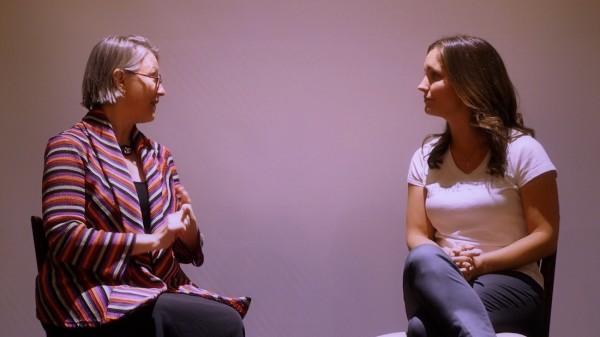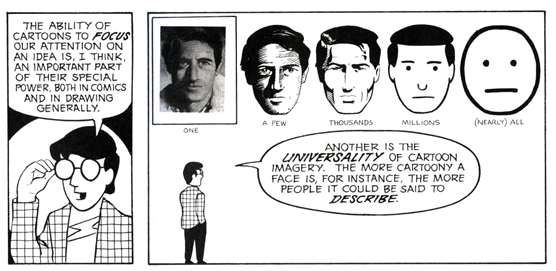Millennials, social media and damning federal investigations are reshaping rape culture’s topography, as more women push back against a culture that loves protecting rapists and vilifying victims. One survivor of childhood slut-shaming opted to make her experience public, posting her diary from childhood online. And after hearing from other women their harrowing encounters with rape culture and victim-blaming, she decided to try making a documentary about rape culture itself. This post stems from Feministe’s interview with the accidental feminist filmmaker behind Slut: A Documentary Film.
Emily, whose pre-teen diary jumpstarted the collaborative UnSlut Project, is part of a recent trend amongst anti-rape advocates – ensuring their stories have faces and names. In the past, survivors would remain silent about their experiences, or only reveal them with names redacted, to avoid harassment and retaliation. Yet recent years have seen a dramatic reversal. Whilst harassment of victims remains as ugly as ever, more survivors are fighting back against the public’s contempt for women, by going public with their own identities and stories.
I first spoke with Emily two years ago, when both of us were students in the same university system. I’d heard through the grapevine she was trying to do a feminist documentary, though not till last year did I begin volunteering time to help with Slut: A Documentary Film. When I heard she was crowdfunding for the last stretch of postproduction, I decided interviewing her would not only bring some attention to the project, but also answer burning questions that I’d always had for her about the feminist filmmaking process.
I called her one weekend, we began chatting, and I said, “So I noticed your childhood diary has become a collaborative space for other women to submit their stories and raise awareness…”

Q: Had you not started with the UnSlut Project, would you have thought to do a documentary?
A: It was completely borne out of the UnSlut Project. I wasn’t a filmmaker then, so I definitely didn’t think to make a film before the UnSlut Project. Basically I realised as I posted my diary entries that I would eventually run out of diary entries, yet I wanted the conversation to be ongoing. The documentary was a later idea, asking if other women could share their stories for a broader audience. So yes, the documentary was borne out of the UnSlut Project.
Q: Working on UnSlut must have helped with talking to other survivors. You spoke with Rehtaeh Parson’s family for the film, and I wager their trust in you stems from your work on UnSlut.
A: That’s a good point, and it’s true. I came out about my own story, and when you put yourself out there, others become more willing to take a risk and trust you.
Q: Well, anyone can guess your experiences inspired you to start the documentary. What else inspired you? Did you look to past feminist docs to develop a vision?
A: Miss Representation definitely inspired me. I love the idea of women telling their own stories… Hearing their voices and stories onscreen in a very personal way struck me as what I wanted to convey. It’s giving a voice to women. Miss Representation has talking heads, but it has regular women and some very famous women personalities…
Q: The director [Jennifer Newsom] assembled quite a pedigree.
A: Exactly, that serves a purpose in showing how wide the issue is. Some of the women are experts, and others just want to share their stories. That’s what I like about her documentary, though our documentary has its own style and voice.
Q: It’ll be stylistically unique?
A: We have an illustrator doing stark, simple cut-outs. It’s one of ways I think this film will be really salient. The women we interviewed had really harrowing experiences, in some cases rape experiences, and we wondered how we could strengthen the visuals to tell their stories. One way that was suggested to me was by using live-action re-enactments…
Q: What?!
A: …and to me it seemed almost… well, very crass. It seemed cheesy and offensive.
Q: I’m damn glad you had that reaction. You can’t see me but I cringed in real life when you mentioned it.
A: I cringed in real life when it was suggested to me too! In some ways I think abstract, simple animation communicates more effectively. I wish I had better language to describe what I mean. There’s a film by a French animator about women and life in Iran. It was nominated for an Oscar…
Q: Oh, Persepolis!
A: Yes! Though the film won’t look too much like Persepolis. It’ll be coloured, more of a cut-out style with line drawings. The issues are so real and the stories so hard to wrap one’s head around that I think the animation will lend an abstractness which will allow viewers to apply their own experiences in some way, if that makes sense, and leaves it a little bit more open-ended than a re-enactment would.
Q: I understand what you mean. Scott McCloud, a famous cartoonist, has written on this point you’re talking about. When you represent people as abstract figures as opposed to realistic drawings, the more people can relate to them, because the more universal they seem. I think that’s what you mean.

A: Yes, exactly. A lot of the material is really upsetting. I think it’ll allow people to access the women’s perspectives, to have an emotional effect without being gory or violent in a way that could be very triggering, though it might still be somewhat triggering. I hope the animation adds a layer in that way.
Q: I think the fact you’re trying to avoid being sensationalist, and that you’re thinking of issues like not triggering the audience, shows you’ve put quite a bit of thought into this.
A: Thank you…
Next week we’ll return with more conversations about speaking with Rehtaeh Parsons’s parents, crowdsourcing as a way to get more feminism into media, and the predictability of being a target for misogynists and online harassment.
Emily is crowdfunding for the final stretch of postproduction for Slut: A Documentary Film. The deadline will be March 6th, so consider donating if it’s within your means!
“Q&A” is an on-going effort to bring more original content to Feministe, featuring conversations with other feminists. If you wish to transmit hate mail, please direct to the Princeton Mom.